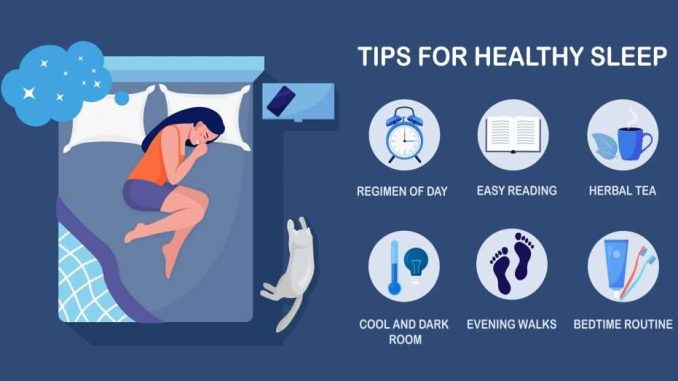
Sleep is often treated as a negotiable part of life, something to be trimmed down in the name of productivity, deadlines, or personal commitments. Yet sleep is not just a period of rest; it is a highly active process during which the body recalibrates and restores itself. Nowhere is this more evident than in its profound impact on hormones. These chemical messengers govern nearly every function in the body, from energy levels and appetite to stress management and reproductive health. When sleep is disrupted, hormonal balance quickly unravels, creating a ripple effect that influences both physical well-being and professional performance. Understanding the connection between sleep and hormones highlights why prioritizing rest is one of the most strategic investments a person can make in their long-term health and productivity.
One of the most immediate hormonal effects of sleep is its role in regulating cortisol, the body’s primary stress hormone. Cortisol naturally follows a rhythm, peaking in the morning to help us wake up and gradually declining throughout the day. Poor or insufficient sleep throws this cycle off balance, leaving cortisol elevated at the wrong times. This not only leads to feelings of stress and anxiety but also impairs focus and decision-making. For professionals navigating demanding environments, elevated cortisol can undermine performance, making it harder to remain composed under pressure. On the other hand, consistent and restorative sleep ensures that cortisol levels remain aligned with natural rhythms, supporting calm, steady energy throughout the day.
Sleep also plays a pivotal role in appetite regulation through its influence on two key hormones: ghrelin and leptin. Ghrelin stimulates hunger, while leptin signals fullness. When sleep is insufficient, ghrelin levels rise and leptin levels fall, creating a perfect storm for overeating. This imbalance explains why late nights often lead to increased cravings for calorie-dense foods. It is not a lack of willpower but rather a hormonal shift that drives these behaviors. Over time, this disruption can contribute to weight gain, metabolic issues, and decreased energy. For someone balancing a busy work schedule, poor sleep becomes a hidden factor sabotaging their ability to maintain consistent nutrition and stable energy levels.
Another critical hormone affected by sleep is insulin, which regulates blood sugar. Sleep deprivation reduces insulin sensitivity, meaning the body struggles to process glucose efficiently. This can lead to higher blood sugar levels and, over time, increase the risk of type 2 diabetes. Even a few nights of inadequate rest can impair insulin function, showing how quickly the body responds to sleep patterns. From a professional perspective, this has implications beyond long-term health risks. Erratic blood sugar can cause energy crashes, mood swings, and reduced focus, directly undermining productivity. Just as businesses depend on steady cash flow to remain stable, the body depends on proper insulin function to maintain balance and efficiency.
Growth hormone, another key player, is also heavily influenced by sleep. This hormone is essential for cellular repair, muscle growth, and recovery. The majority of growth hormone is secreted during deep sleep, making this stage critical for physical restoration. When sleep is shortened or disrupted, the body’s ability to repair tissues and build strength is compromised. For professionals who exercise to manage stress or maintain health, inadequate sleep limits progress and increases injury risk. Much like a company that neglects reinvestment in its infrastructure, the body that is deprived of sleep cannot fully recover or prepare for future demands.
Reproductive hormones are similarly affected by sleep quality. In men, inadequate rest can lower testosterone levels, leading to reduced energy, mood changes, and decreased motivation. In women, disrupted sleep can affect estrogen and progesterone balance, influencing menstrual cycles, fertility, and even bone health. These hormonal shifts may not always be immediately visible but accumulate over time, shaping long-term well-being. The message is clear: sleep is not simply restorative for the mind but essential for maintaining the body’s delicate hormonal balance.
The connection between sleep and hormonal health also extends to the immune system. Melatonin, the hormone that regulates sleep-wake cycles, plays an important role in protecting cells from damage and supporting immune function. Poor sleep suppresses melatonin production, leaving the body more vulnerable to illness and less able to recover. For professionals, this often translates into more frequent colds, slower recovery from stress, and greater susceptibility to burnout. Just as resilient companies rely on robust systems to weather disruptions, resilient individuals rely on quality sleep to keep their immune and hormonal systems in sync.
It is worth noting that the quality of sleep matters as much as the quantity. Deep, uninterrupted sleep allows the body to cycle through the stages necessary for hormonal regulation. Irregular sleep schedules, frequent late nights, or reliance on stimulants and screens before bed all interfere with these natural rhythms. Creating consistent sleep habits—such as setting a regular bedtime, minimizing screen use before sleep, and ensuring a restful environment—supports the hormonal recalibration that takes place overnight. In professional terms, this is akin to routine system maintenance that keeps complex operations running smoothly.
Ultimately, sleep is one of the most powerful yet undervalued tools for hormonal health. It regulates stress, appetite, metabolism, recovery, and immunity, all of which directly influence daily energy and long-term resilience. For professionals, the implications are profound: consistent, high-quality sleep is not just a personal luxury but a performance necessity. It provides the physiological stability that allows individuals to think clearly, manage stress effectively, and sustain productivity. Just as businesses cannot thrive without a strong foundation, individuals cannot reach their potential without adequate sleep to balance and restore their hormonal systems. By treating sleep as a non-negotiable priority, people equip themselves with the energy, focus, and resilience needed to thrive in both work and life.
Would you like me to also prepare a shorter 400–500 word version of this article that you could share in newsletters or as a professional wellness piece on LinkedIn?